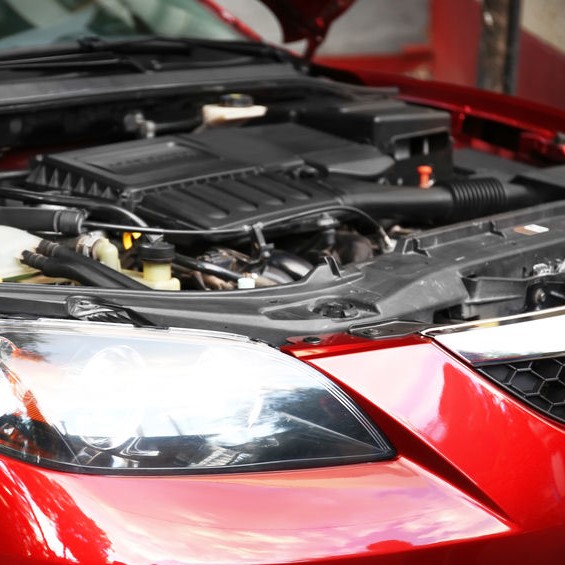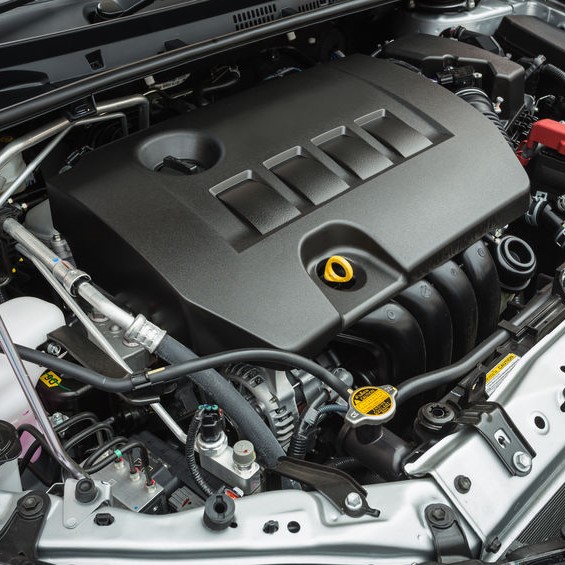
What is a tune up?
You bought a car; you make the payments and keep the insurance and registration up-to-date. You get in it, you start the engine, put it in gear and go. Occasionally you stop for gas, maybe add air to the tires, and have the oil changed. What else is there to do? Get an engine tune up!
An engine tune up is a preventive maintenance on your car that will ensure it is operating and running at optimum ability. An engine tune up is akin to having your HVAC or roof inspected on a regular schedule. It allows your mechanic to find any small issues and repair them before they become costly engine repair or replacement.
What does an engine tune up consist of?
For today’s cars, an engine tune up is somewhat outdated. Older cars, an engine tune up service, consists of bringing the fuel system and ignition up to manufacturer’s spec. These things allow the engine to perform to the ultimate maximum with efficiency. Changing the air filter and spark plugs are part of the engine tune up.
Today, an engine tune up service includes replacing the cabin air filter and new spark plugs. You can incorporate this with your regular oil change, and the technician should automatically check the following:
- Tires, adding air if needed
- Windshield wiper, inquire if you’d like them to change for an upcharge
- Vacuum hoses, replace any faulty one
- Oxygen sensors, inquire if you’d like them to change for an upcharge
Why do you need an engine tune up?
If regular inspection, maintenance, and an engine tune up aren’t performed on a car, it won’t operate as efficiently as it should and could become unreliable. When a car has been maintained and regular tune up performed, it stays well-tuned and performs at the maximum level.
Does a tune up to make your car run better?
Yes, an engine tune up and maintenance does help a car run better, just like our HVAC system needs regular cleaning, inspection, maintenance to keep your house cool in the summer or warm in the winter. An engine tune up will help your car’s performance and use less gasoline.
How often does my car need a tune up?
Even when a car is running perfect, an engine tune up will keep it running by preventing problems and symptoms from occurring. An older vehicle with non-electronic ignitions should have an engine tune up every 10,000 miles to 20,000 miles.
A new car can go 30,000 miles before an engine tune up is needed, some cars can go 100,000 miles. It is best to refer to the owner’s manual and follow the manufacturer’s recommendations of engine tune-up schedule.
Some people dread this process because they don’t want to spend the time at the auto dealership. If you have a certified license mechanic that you trust and have relied on before, you do not have to take your car to the dealership for an Engine tune up and repair.
An independent auto garage can perform the service just as well, and some independent garages are owned by or employ former dealership mechanics. Some dealerships do offer a reasonably priced engine tune up package, which will usually include a car detailing with washing and vacuuming. An independent garage may not offer those perks.

What are the signs that your car needs a tune up?
Every car will need an engine tune up at some point. If you aren’t good at watching the recommended date and mileage, here are some things you should be aware as signs you need to schedule your next engine tune up an appointment:
- Difficulty starting: There could be several things happening when our car isn’t starting easily. The battery or fuel pump could be going bad, or the ignition isn’t firing.
- Stalling: If your car is stalling occasionally or frequently, it could need new spark plugs. Is it stalling when cold or hot? Are you running the air conditioner when it stalls? These are things your mechanic needs to know.
- Knocking sound, rough idling, rough or slow acceleration: If your car is doing any of this while going uphill, it could be the spark plugs, or it could be something more.
- Poor gas mileage: If your car has begun using more gas than usual, it could need spark plugs to change, or the fuel injectors cleaned.
It is essential to know the difference between tune-up vs maintenance so that you aren’t getting both services done each time you take your car in for maintenance or a tune up. Almost all cars can have a tune-up performed by the mechanic or technician lifting the hood. An engine tune up consists of replacing the following:
- Spark plugs
- Plug wires
- Distributor cap
- Air Filter
- Fuel Filter
- PVC valve
- Clean throttle body
- Set to manufacturer specification
- A full engine tune up will go further and include the following with your car raised on a lift:
- Remove wheels
- Inspect tires and wheels
- Rotate tires
- Check brake pad, calibers, shoes, rear drum
- Check exhaust system
- Check suspension including ball joints, control arms, shocks or struts, tie rod, steering rack, power steering pump, lines, and fluid
- Fuel tank and all components
- Vapor system and fuel lines
Car maintenance includes the following:
- Oil change
- Fluid check (brakes, radiator, wipers, steering)
- Check wiper blades
L.A. NTX Transmissions is your source for quality auto services in Inglewood, CA. We are always available to assist you. Call us today at 310 672-8131!
